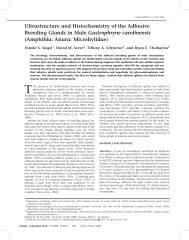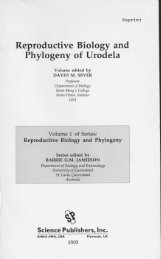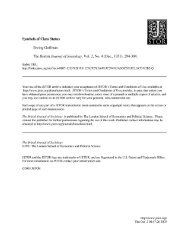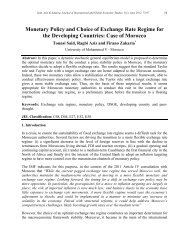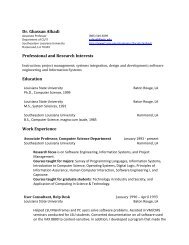Marvelous Facts and Miraculous Evidence in Early Modern Europe ...
Marvelous Facts and Miraculous Evidence in Early Modern Europe ...
Marvelous Facts and Miraculous Evidence in Early Modern Europe ...
You also want an ePaper? Increase the reach of your titles
YUMPU automatically turns print PDFs into web optimized ePapers that Google loves.
110 Lorra<strong>in</strong>e Daston<br />
<strong>Facts</strong> <strong>and</strong> <strong>Evidence</strong><br />
Aristotelian natural philosophy shunned not only s<strong>in</strong>gular events, but<br />
all particulars, however commonplace, unless these led to generalizations<br />
<strong>and</strong> the discovery of causes.46 The proper doma<strong>in</strong> of particulars, of facts,<br />
as they came to be called, was history, not philosophy: "The register of<br />
Knowledge of Fact is called History. Whereof there be two sorts: one called<br />
Naturall History; which is the History of such <strong>Facts</strong>, or Effects of<br />
Nature.... The other is Civill History; which is the History of the Voluntary<br />
Actions of men <strong>in</strong> Common-wealths."47 History could contribute the<br />
raw materials <strong>and</strong> illustrations to natural philosophy-thus Aristotle's<br />
History of Animals was to prepare the way for a philosophical zoology-but<br />
by itself it was an <strong>in</strong>ferior sort of knowledge, subord<strong>in</strong>ated to the study of<br />
universals <strong>in</strong> philosophy or poetry.48 Jurisprudence, like history, also<br />
relied predom<strong>in</strong>antly on facts <strong>and</strong> <strong>in</strong>ferences from them, rather than on<br />
universals <strong>and</strong> demonstrations about them. However, this was simply<br />
proof positive of the <strong>in</strong>feriority of legal reason<strong>in</strong>g,<br />
even <strong>in</strong> the view of the<br />
jurists themselves.49<br />
This does not mean that Aristotelian philosophy was not empirical,<br />
only that its empiricism was not that of facts, <strong>in</strong> the sense of derac<strong>in</strong>ated<br />
particulars untethered to any theory or explanation. Examples drawn<br />
from daily experience pepper the pages of Aristotelian treatises <strong>in</strong> natural<br />
philosophy, but they are just that-examples, <strong>and</strong> mundane ones at that.<br />
Examples illum<strong>in</strong>ate or illustrate a general claim or theory; counter-<br />
examples contradict these claims only when an alternative universal lies<br />
ready at h<strong>and</strong>. Examples do not float free of an argumentative context;50<br />
they are, <strong>in</strong> our parlance, evidence rather than facts. To have served up<br />
particulars, even prosaic ones, without an explanatory sauce would have<br />
thereby demoted natural philosophy to natural history. To have served up<br />
preternatural particulars would have added <strong>in</strong>sult to <strong>in</strong>jury <strong>in</strong> the view not<br />
only of orthodox Aristotelians but also of <strong>in</strong>novators who, like Galileo or<br />
Descartes, still upheld the demonstrative ideal of science.51<br />
Only a reformer <strong>in</strong>tent on destroy<strong>in</strong>g this ideal, as well as specific<br />
claims of Aristotelian natural philosophy, would have been able to<br />
embrace preternatural particulars with open arms, <strong>and</strong> such was Francis<br />
Bacon. Impatient with Scholastic logic <strong>and</strong> scornful of the syllogism as an<br />
<strong>in</strong>strument for the <strong>in</strong>vestigation of nature, Bacon also challenged the<br />
validity of the axioms on which Aristotelian demonstrations were<br />
46. See Aristotle, Parts of Animals, 639al3-640al0.<br />
47. Thomas Hobbes, Leviathan, ed. C. B. Macpherson (1651; Harmondsworth, 1981),<br />
p. 148.<br />
48. See Aristotle, Poetics, 1451b1-7.<br />
49. See, for example, Jean Domat, Les Loix civiles dans leur ordre naturel, 2d ed., 3 vols.<br />
(Paris, 1696-97), 2:346-47.<br />
50. I owe this view of scholastic empiricism to a paper by Joan Cadden on Albertus<br />
Magnus, to my knowledge never published.<br />
51. See Daston, "Baconian <strong>Facts</strong>, Academic Civility, <strong>and</strong> the Prehistory of Objectivity."



